Alcohol Treatment Near
Knoxville, Tennessee
Cornerstone of Recovery near Knoxville offers affordable, comprehensive alcohol addiction treatment through our proven 12-step recovery program. Experience effective detox, residential care, and personalized support in the heart of East Tennessee.
Affordable Alcohol Treatment in Tennessee
Alcohol addiction, clinically known as alcohol use disorder, represents one of the most widespread and challenging forms of substance abuse affecting individuals and families throughout Tennessee and across the United States. At Cornerstone of Recovery, located near Knoxville in Louisville, Tennessee, we have dedicated ourselves to providing affordable, accessible, and effective treatment for alcohol use disorder through our proven 12-step recovery program combined with modern medical interventions and evidence-based therapeutic practices.
The pervasive nature of alcohol in American society makes alcohol addiction particularly complex and challenging to address. Unlike illegal substances, alcohol is legal, readily available, socially acceptable, and deeply embedded in cultural traditions, celebrations, and social interactions. This widespread acceptance and availability can make it extremely difficult for individuals to recognize when their drinking has progressed from occasional social use to regular consumption to problematic use and eventually to full addiction requiring professional intervention.
Alcohol use disorder exists along a spectrum of severity, with symptoms and consequences ranging from mild to moderate to severe. The progression from social drinking to addiction can happen gradually over months or years, often without the individual or their family members recognizing the warning signs until the problem has become deeply entrenched and difficult to address. This gradual progression allows the addiction to develop strong roots in the person’s life, affecting their relationships, work performance, physical health, and overall well-being.
The physiological effects of alcohol on the brain and body are profound and multifaceted. Alcohol is classified as a central nervous system depressant that affects virtually every organ system and function in the body. When consumed regularly over extended periods, alcohol fundamentally alters brain chemistry and structure, particularly in areas responsible for decision making, impulse control, reward processing, memory formation, and emotional regulation. These neurochemical changes make it extremely difficult for individuals to control their drinking, even when they are fully aware of the negative consequences it is causing in their lives.
At Cornerstone of Recovery, we approach alcohol addiction treatment with the understanding that this is a chronic medical condition that requires ongoing management and support, not a moral failing or lack of character. Our treatment philosophy is grounded in the time-tested principles of the 12-step recovery program, enhanced with modern medical care, evidence-based therapeutic practices, and a deep commitment to making treatment affordable and accessible to individuals and families regardless of their financial circumstances.
Our commitment to affordability sets us apart from many other treatment facilities. It reflects our core belief that financial barriers should never prevent someone from accessing the life-saving treatment they need. We work with most major insurance providers and offer flexible payment plans and financial assistance programs to ensure our services are accessible to individuals and families throughout Tennessee. This commitment to affordability, combined with our proven treatment approach and experienced clinical team, makes Cornerstone of Recovery an ideal choice for individuals seeking high-quality alcohol addiction treatment in East Tennessee.
Alcohol Addiction Symptoms And Warning Signs
Recognizing the signs and symptoms of alcohol addiction is critical for early intervention and successful treatment outcomes.
Alcohol use disorder can develop gradually and insidiously, with symptoms becoming more pronounced as the addiction progresses and takes hold of the individual’s life. At Cornerstone of Recovery, we educate individuals and families about these warning signs so they can seek appropriate help before the situation becomes more dangerous or difficult to treat effectively.
Physical Signs and Health Changes
The physical manifestations of alcohol addiction often appear before the psychological and behavioral symptoms. Individuals struggling with alcohol addiction may experience frequent hangovers that seem to last longer and become more severe over time, indicating that their body is having increasing difficulty processing and recovering from alcohol consumption. They may require increasingly larger amounts of alcohol to achieve the same effects they once experienced with smaller quantities. This phenomenon, known as tolerance, indicates that the body is adapting to regular alcohol consumption.
Sleep patterns typically become severely disrupted, with individuals experiencing difficulty falling asleep without alcohol, frequent awakening during the night, early morning awakening, or feeling unrested despite spending adequate time in bed. Many people with alcohol addiction experience tremors or shaking, particularly in the morning or when they have not consumed alcohol for several hours. These tremors may be subtle at first but can become more pronounced and noticeable as the addiction progresses and physical dependence deepens.
Gastrointestinal problems are common among individuals with alcohol addiction and can become quite severe and persistent over time. They may experience frequent nausea, vomiting, stomach pain, heartburn, acid reflux, or changes in appetite and eating patterns that affect their overall nutritional status, weight, and general health. Chronic alcohol use can lead to liver problems, which may manifest as yellowing of the skin or eyes (jaundice), abdominal swelling or tenderness, persistent fatigue, or unusual bruising that indicates liver function is becoming compromised.
Changes in physical appearance are often noticeable to family members, friends, and coworkers who interact with the individual regularly. Individuals may appear flushed or have persistent redness in their face and nose due to the effects of alcohol on blood vessels and circulation. They may experience unexplained weight loss or gain, poor personal hygiene, or a general decline in their physical appearance and self-care habits that reflects their increasing preoccupation with drinking and decreasing attention to well-being.
Behavioral and Social Symptoms
The behavioral changes associated with alcohol addiction can have profound and lasting impacts on relationships, work performance, family dynamics, and overall quality of life. Individuals may begin to prioritize drinking over other activities and responsibilities that were once important to them, including family obligations, work commitments, social activities, hobbies, and personal interests that do not involve alcohol. They may start drinking earlier in the day, drinking alone, or hiding their alcohol consumption from family and friends, indicating that they are aware their drinking has become problematic but are unable to control it effectively.
Social activities may increasingly revolve around drinking, and individuals may avoid situations where alcohol is not available or where their drinking might be questioned, monitored, or restricted. They may lose interest in hobbies, sports, exercise, or other activities they once enjoyed, replacing these healthy activities with drinking or activities that facilitate or enable drinking. Relationships with family and friends often become strained as the addiction progresses and drinking takes priority over maintaining healthy connections with loved ones.
Work or school performance typically begins to decline, with frequent absences, tardiness, missed deadlines, decreased productivity, poor concentration, or conflicts becoming common and noticeable. Individuals may call in sick more frequently, particularly on Mondays or after weekends, or may show up to work or school under the influence of alcohol or suffering from hangover symptoms that affect their performance and reliability.
Financial problems often develop as increasing amounts of money are spent on alcohol, leading to unpaid bills, accumulating debt, maxed-out credit cards, or other financial difficulties that can create additional stress and problems in their lives. Legal problems may develop as a result of drinking and driving, public intoxication, disorderly conduct, domestic disputes, or other alcohol related incidents that bring individuals into contact with law enforcement and the legal system. Individuals may continue to drink despite experiencing negative consequences such as DUI arrests, job loss, relationship problems, or health issues, which is one of the hallmark signs of addiction.
If you or someone you care about is struggling with alcohol addiction, please know that help is available and recovery is absolutely possible. Cornerstone of Recovery has been providing hope, healing, and transformation to individuals and families affected by addiction for years. Our compassionate and experienced team is ready to guide you through every step of the recovery process with the expertise, support, and understanding you deserve.

What if Everything Could Change, Starting Today?
Admissions Counselors are available to talk 24/7.
What Are the Long-Term Effects of Alcohol Addiction?
The health consequences of alcohol addiction are extensive, multifaceted, and can affect virtually every organ system and function in the body, creating both immediate and long-term effects that can persist even after achieving sobriety. This is especially dangerous for those in Tennessee and neighboring states, as they are on the higher end of binge drinking.
At Cornerstone of Recovery, we help our clients understand the comprehensive impact that chronic alcohol use can have on their physical, mental, and emotional health, both to emphasize the importance of seeking treatment and to address the various medical and psychological issues that may need attention during the recovery process.
Immediate Physical Health Risks
The immediate effects of alcohol consumption can be dangerous and potentially life-threatening, particularly when large quantities are consumed in short periods, when alcohol is combined with other substances that depress the central nervous system, or when individuals have underlying health conditions that increase their vulnerability. Alcohol poisoning is a serious and potentially fatal condition that occurs when blood alcohol levels become dangerously high, overwhelming the body’s ability to process and eliminate the alcohol effectively. Symptoms include severe confusion, vomiting, seizures, slow or irregular breathing, hypothermia, and unconsciousness that can progress to coma or death without immediate emergency medical intervention.
Alcohol significantly impairs judgment, coordination, reaction time, decision-making abilities, and risk assessment, leading to a dramatically increased risk of accidents and injuries that can have lasting and life-altering consequences. Falls, burns, drowning, motor vehicle accidents, workplace injuries, and other traumatic incidents are all more likely to occur when individuals are under the influence of alcohol. These accidents can result in serious injuries, including traumatic brain injury, spinal cord damage, broken bones, internal injuries, lacerations, and other conditions that may require extensive medical treatment, rehabilitation, and ongoing care.
Cardiovascular effects of acute alcohol consumption include dangerous changes in heart rate and blood pressure that can be particularly risky for individuals with pre-existing heart conditions, high blood pressure, or other cardiovascular risk factors. Alcohol can trigger irregular heart rhythms, chest pain, heart palpitations, and other cardiac symptoms that may require emergency medical attention. Dehydration and electrolyte imbalances are also common with heavy alcohol consumption and can lead to serious medical complications, including kidney problems, muscle weakness, cardiac arrhythmias, and other potentially dangerous conditions if not addressed promptly and appropriately.
Chronic Physical and Medical Consequences
Chronic alcohol use creates a cascade of serious health problems that can affect the entire body and lead to permanent damage that may not be reversible even with sustained sobriety and comprehensive medical care.
The liver bears the primary burden of alcohol’s toxic effects, as it is responsible for metabolizing and eliminating alcohol from the body through complex biochemical processes. Chronic alcohol use can lead to fatty liver disease, alcoholic hepatitis, cirrhosis, liver failure, and liver cancer. These conditions can be life-threatening and may require liver transplantation in severe cases.
The cardiovascular system is also significantly affected by chronic alcohol use, with long-term drinking leading to high blood pressure, cardiomyopathy (enlarged and weakened heart muscle), irregular heart rhythms, increased risk of heart attack and stroke, and other serious cardiovascular complications. These cardiovascular effects can persist even after individuals stop drinking and may require ongoing medical management, monitoring, and treatment to prevent serious complications and maintain cardiovascular health throughout recovery and beyond.
The digestive system suffers extensive damage from chronic alcohol use, with alcohol causing inflammation of the stomach lining (gastritis), peptic ulcers, increased risk of gastrointestinal bleeding, and damage to the esophagus and other parts of the digestive tract. The pancreas may become inflamed (pancreatitis), leading to severe abdominal pain, digestive problems, diabetes, and potential complications, including pancreatic cancer. Chronic alcohol use also significantly increases the risk of various cancers, including liver, breast, colorectal, throat, esophageal, mouth, and stomach cancers.
The immune system becomes severely compromised with chronic alcohol use, leaving individuals much more susceptible to infections and illnesses of all types and reducing their ability to recover from injuries and medical procedures. Wound healing is significantly slowed, and the body’s ability to fight off bacteria, viruses, and other pathogens is diminished, leading to frequent respiratory infections, skin infections, and other health problems that can become serious or life-threatening if left untreated. This immunosuppression can persist for months or even years after achieving sobriety, requiring ongoing medical attention and support.
Mental Health and Cognitive Effects
The relationship between alcohol addiction and mental health is complex, with alcohol use often worsening existing mental health conditions while also contributing to the development of new psychological problems that can persist long after drinking stops. Many individuals with alcohol addiction also struggle with depression, anxiety, bipolar disorder, post-traumatic stress disorder, or other mental health conditions that may have preceded the alcohol use, developed alongside it, or emerged as a consequence of chronic drinking and its effects on brain chemistry and function.
Neurological effects of chronic alcohol use include peripheral neuropathy (nerve damage in the hands and feet), memory problems, cognitive impairment, difficulty with concentration and attention, and increased risk of dementia and other neurodegenerative conditions that can significantly impact quality of life and daily functioning. Alcohol related brain damage can affect cognitive function, coordination, balance, fine motor skills, and executive function abilities, leading to difficulties with work performance, daily activities, relationship management, and increased risk of falls and accidents. Some of these neurological effects may be permanent, even after achieving long-term sobriety and receiving comprehensive medical care.
Sleep disorders are extremely common among individuals with alcohol addiction and can persist for months or years after stopping drinking, significantly impacting recovery and overall well-being. While alcohol may initially help people fall asleep, it significantly disrupts sleep architecture, reduces REM sleep, and can lead to chronic insomnia, sleep apnea, and other sleep-related problems that affect overall health, mental well-being, cognitive function, and quality of life. Poor sleep quality can worsen depression and anxiety symptoms, impair immune function, and make it more difficult to maintain sobriety during the recovery process, highlighting the importance of addressing sleep issues as part of comprehensive treatment and ongoing recovery support.
12-Step Based Alcohol Recovery at Cornerstone of Recovery
At Cornerstone of Recovery, our approach to alcohol addiction treatment is built on the proven foundation of the 12-step recovery program, enhanced with modern medical interventions, evidence-based therapeutic practices, and a deep commitment to making treatment affordable and accessible to individuals and families throughout Tennessee and beyond.
We understand that successful recovery from alcohol addiction requires addressing not only the physical dependence on alcohol but also the underlying psychological, social, behavioral, and spiritual factors that contribute to the development and maintenance of addiction
Our 12-Step Program Process
Thorough Assessment and Personalized Treatment Planning
Our program starts with a thorough evaluation conducted by our addiction experts. This detailed assessment examines not only the extent and severity of the addiction but also identifies any co-occurring mental health conditions, medical complications, family history, and past trauma that may impact the process. We then develop an individualized treatment plan that addresses each person’s unique needs, circumstances, goals, and recovery vision, ensuring that every aspect of their care is specifically tailored to their situation and designed to maximize their chances of achieving lasting recovery.
Medically Supervised Detox and Stabilization
We provide safe, comfortable, and medically supervised detoxification services with 24/7 medical monitoring and support. We closely monitor each client throughout the entire detox process, utilizing appropriate medications and interventions to manage withdrawal symptoms, prevent complications, and ensure safety and comfort during this critical phase. As alcohol withdrawal can be extremely uncomfortable (and potentially life-threatening), we are committed to making this process as safe, comfortable, and dignified as possible while providing the medical supervision necessary to prevent serious complications and support a successful transition to active treatment.
12-Step Program Foundation and Spiritual Development
The cornerstone of our treatment program is built on the proven principles of the 12-step model, which has helped millions of people overcome addiction and build meaningful, fulfilling lives in recovery.
This approach emphasizes personal accountability, spiritual growth, peer support, making amends for past wrongs, and the development of healthy coping mechanisms and life skills that support long-term sobriety. Our experienced counselors guide clients through each step of this transformative process, helping them understand and apply these time-tested principles to their own recovery journey while building a strong foundation for lasting recovery.
Inpatient/Residential
Cornerstone of Recovery offers customized, evidence-based Inpatient and Residential treatment plans that meet each person’s unique emotional, spiritual, and lifestyle needs. When you decide to start your recovery, we’re here, offering a safe, comfortable community where you can focus on healing and rewriting your story.
Outpatient
Whether you’re transitioning from a residential rehab program or just starting your recovery journey, our Outpatient addiction treatment in Knoxville provides the care and support you need. From Partial Hospitalization Programs (PHP) and Intensive Outpatient Programs (IOP) to individual therapy and aftercare, we offer personalized treatment plans tailored to your recommended level of care and lifestyle.
PHP
Cornerstone of Recovery’s Partial Hospitalization Program (PHP) in Knoxville, TN, provides intensive addiction treatment for men and women that combines the structure of residential care with the flexibility of outpatient services. Our PHP offers comprehensive therapeutic services during the day, allowing you to return home each evening, making it ideal for individuals who need intensive support but want to maintain connections with family, work, and community.
Alumni
The Cornerstone Alumni Program offers fellowship and support through a strong community of peers and friends in recovery, helping to bridge the gap between treatment and a rewarding life of sobriety through resources, advocacy, and opportunities for social connection.
INSURANCE OPTIONS
We are in network with most insurance providers, including Blue Cross Blue Shield, United Healthcare, Humana, Aetna, TRICARE, and Veterans Community Care programs. Contact us for a free insurance verification to find out what benefits are available through your plan.












